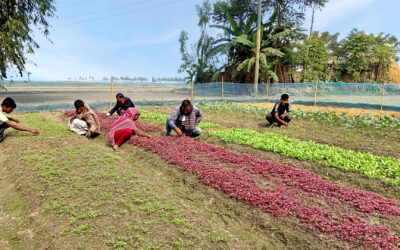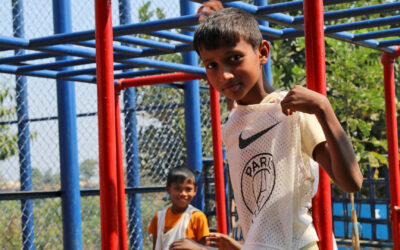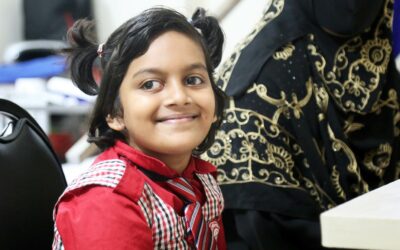Friendship partnered with PRESCRIP-TEC to prevent a detectable, preventable, treatable cancer that was still hindering, and taking lives in the remote river islands of Bangladesh.
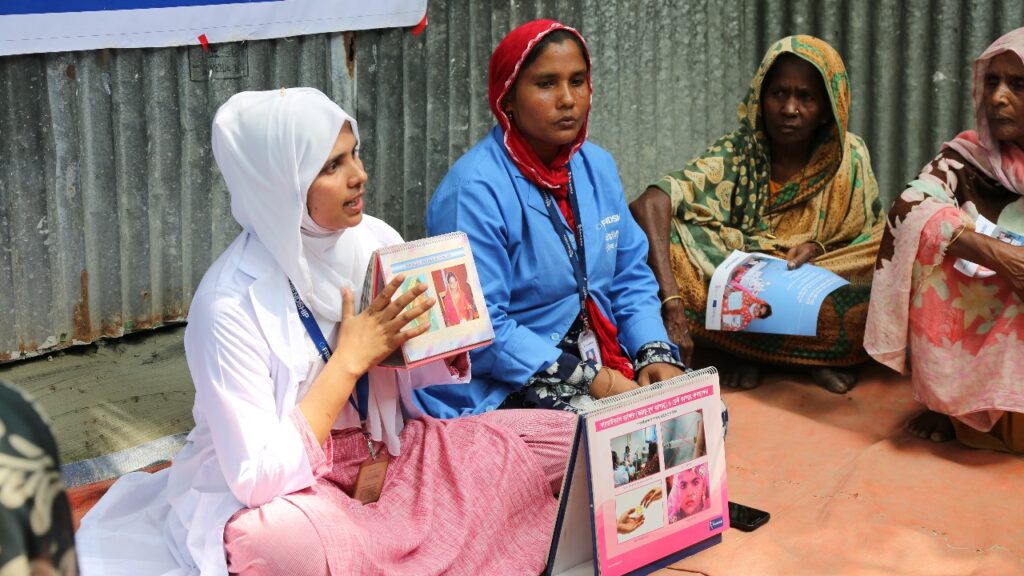
by Dr Naheed Nazrul
March 28, 2024
In Bangladesh, cervical cancer is the second most common form of cancer in women. Prevention of this cancer is possible through vaccination, screening and early management of precancerous lesions. However, the inaccessibility and unavailability of organised screening services cause delays in the detection of this disease. The Prevention and Screening Innovation Project Toward Elimination of Cervical Cancer (PRESCRIP-TEC) project, which Friendship had implemented in Bangladesh, sought to address this issue through the swabs used by the patients themselves to collect samples to detect the high-risk Human Papillomavirus (HPV).
This is of particular note in the isolated river islands, called chars, of Bangladesh’s remote northern regions. These islands, which tend to form, flood and erode at the whim of the rivers, are an impermanent landscape where access and infrastructure are all but absent. Subsequently, the socio-economic factors are a reflection of these circumstances, and people from these communities are unable to find affordable healthcare if they are willing to find it in the first place.
Women’s health issues, especially sexual and reproductive health are a taboo subject in these heavily underdeveloped areas, and women tend not to take measures for their benefit if they are aware of them to begin with.
To add to these circumstances, girls are seen as something of a financial burden upon reaching adolescence, as they are not involved in contributing to the livelihood of the household. As such, they are married off after primary education, even though child marriage is illegal. This traditional practice not only affects a woman’s psychosocial development, but being forced to birth to children repeatedly starting from an early age is a major factor in their physical condition as well.
Thankfully, PRESCRIP-TEC’s self-swabs allow women to examine themselves, without having to make their way to a clinic and braving both the social stigma and often unaffordable expense. However, even that comes at a cost.
Mosammat Banu (name changed for privacy), age 45 years, a widower from Shundorgonj Upazila under Gaibandha District is one of the women that comes to mind from recent memory.
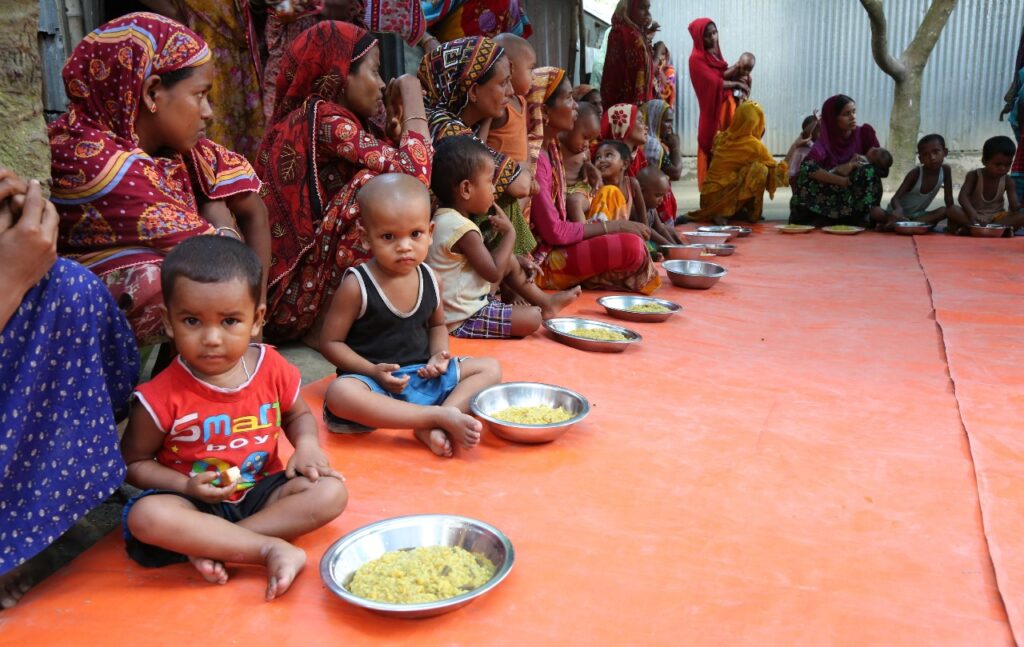
Banu was married for about 30 years and widower for a further five years. Due to her parents’ financial distress, Banu was married off at the age of 14. Her husband was a farmer who tried hard to provide for his family with his limited means but was unable to surmount his difficulties. She had her first baby when she was only 16 years old. Now in her late forties, she is a mother of four children.
For a prolonged period, she experienced increased blood-stained vaginal discharge with frequent white discharge, lower abdominal pain, irregular menstrual cycles and post-coital pain. She was anxious, scared, overwhelmed, and worried about what would happen to her. She visited village doctors to seek treatment, but she was even more distressed to discover the unavailability of any proper medical assistance to address her condition. She also felt ashamed and embarrassed to share her discomfort with others. After the death of her husband, she ignored her symptoms and concentrated more on her daily struggles. She is an example of what many women like her go through daily and is also a global health challenge.
The PRESCRIP-TEC project was formally commenced in 2021, to research and explore efficient and innovative means of cervical cancer screening, increasing accessibility to screening and treatment for marginalised women living in hard-to-reach areas and increasing awareness of cervical cancer at community levels. Cervical cancer is a major public health problem threatening women, especially in rural and hard-to-reach areas. It is funded by the EU and the Government of India’s Department of Biotechnology and was active in Bangladesh, India, Uganda and Slovakia.
At some point after 2021, Banu heard about this new screening approach by attending a courtyard session in her char, organised by the Friendship Community Medic-aide. She found out about cervical cancer and its symptoms conducted by Friendship’s Health team. This session proved to be fortuitous for banu, as she learned about cervical cancer screening, and how it is diagnosed and treated free of cost. She found few of her symptoms and risk factors matched with what had been discussed, and she consulted the FCM about her symptoms in detail. The paramedic gave her the kits for self-swab collection, demonstrated the procedure and recorded all the data in the ICT-aided mHealth App while maintaining confidentiality and making a note of her geographical location for referrals if need be.
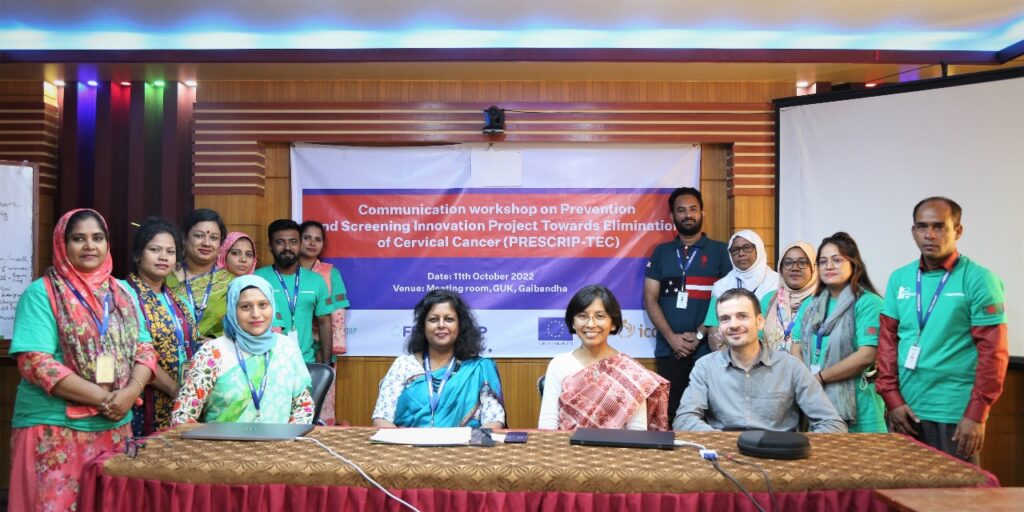
Again, her story is not unique. In fact, it is the intended result. Women like Banur are unaware of, and often incapable of a proper medical analysis, for logistical, geographical, financial and social hurdles. The sad irony is that cervical cancer, if detected in time, is treatable, but few do. The PRESCRIP-TEC project, implemented in Bangladesh from 2021 – 2024 in Bangladesh by Friendship and International Centre for Diarrhoeal Disease Research, Bangladesh (icdd,b), sought to change that narrative Before the project, there was about 6% participation in cancer screening. PRESCRIP-TEC bumped that number up to 90%.
Studies have shown that cervical cancer is mostly caused by the sexually transmitted Human Papillomavirus (HPV), and prevention and early screening are always better than cure. That prevention can only come from proper community sensitisation, which is a big part of PRESCRIP-TEC’s endeavour.
However, the Visual Inspection by Acetic acid (VIA) test, and the GeneXpert machine that processes it, are require expense and expertise. That is where Friendship and iccdr,b come in, with their vast combined experience in doorstep healthcare in rural communities, as well as culturally sensitive awareness raising and sensitisation.
After she tested positive, Banu was devastated as she was uncertain about its treatability. The medical team gave her full assurance that there was nothing to be worried about. After further diagnosis by VIA at the Friendship clinic, the medical team gave her thermal ablation treatment at Friendship’s Health Clinic at Gaibandha which took only half an hour. After that, she was advised to re-visit the hospital after a year. The FCM conducted regular house visits to monitor her and was pleased to see her symptoms abating.
Mst. Banu told her, “Receiving disease-positive screening results can be worrying, but it can also make you stronger. I am healthier and feeling better than I was before the diagnosis and now I have a ‘together we can end cervical cancer’ mentality and be a survivor to spread the benefit of screening in the community.” Being found HPV positive is life changing but it doesn’t mean that life has to stop. There is a solution for the disease as well, which needs knowledge and care to overcome the pain and worries.

